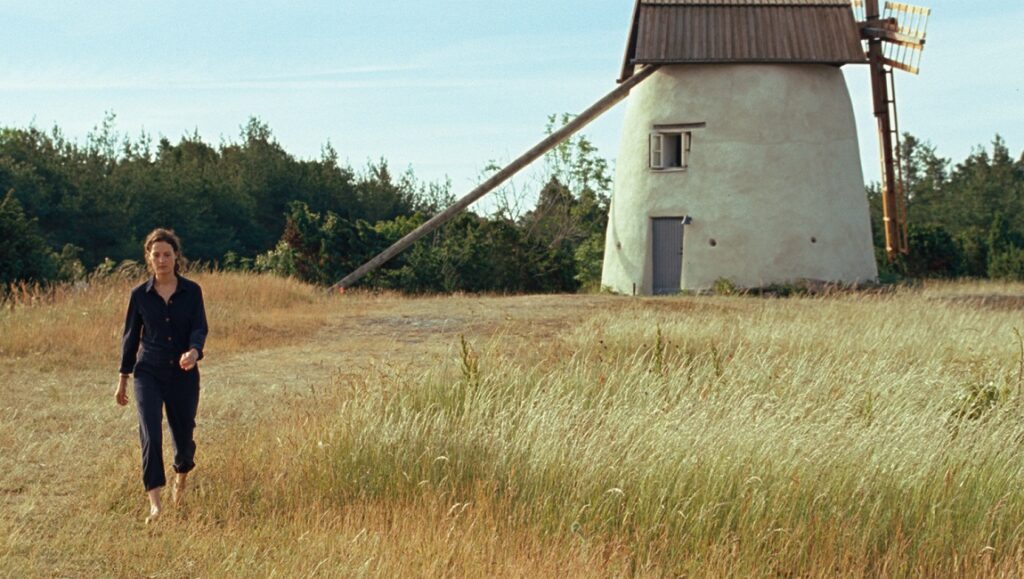Bergman Island is an intentionally ephemeral, frictionless bit of meta-fiction, conceptually justifiable but all the more frustrating for it.
Mia Hansen-Løve’s Bergman Island is, quite literally, an insular film. Set almost entirely on the island of Fårö, where the legendary Swedish filmmaker lived and shot a number of his most celebrated features, it looks at a place that has become a focal point for all things Bergman, playing host to fervent devotees and idle tourists alike. But over its runtime, the film also raises a number of concerns more specific to, well, an artist such as Hansen-Løve: the familiar anxiety of artistic influence, the relationship between art and (family) life, not to mention the pleasures and perils of a creative partnership. The latter inevitably brings to mind the director’s former relationship with Olivier Assayas, who not too long ago directed Non-Fiction (2018), a film that covered similar thematic territory. Indeed, the film’s French title, Double vies, would work pretty well for Bergman Island, too, a film that, over its runtime, presents parallels and doublings aplenty, continually folding in on itself in unexpected, if not always productive ways.
In Bergman Island’s first hour, we mainly follow Chris (Vicky Krieps) and Tony (Tim Roth), a filmmaking couple invited to do a residency on Fårö courtesy of the Bergman Foundation. Both express some admiration for Bergman, but the former’s position is undoubtedly the more complicated one, the director’s real-life cruelty and neglect of family (specifically his nine children) frustrating her desire for “a certain coherence” between life and art. This ambivalence understandably informs much of her stay: Bergman’s presence all but shadows the film’s locations, and the island thus presents Chris with a kind of crisis, a creative confrontation given physical form. This in turn informs the film’s second half, which brings to life a script idea that Chris narrates to Tony, about a young woman, Amy (Mia Wasikowska), who reconnects with a former flame, Joseph (Anders Danielsen Lie), while attending a wedding on Fårö. We return to the Chris–Tony A-story periodically, but the Amy–Joseph B-story is clearly meant to develop the same anxieties in a different context.
What Bergman Island offers, ultimately, is a kind of riddle in a mirror: much of its interest lies simply in the opportunity to step into and out of the looking glass, as it were. Trouble is, this canny framework comes at the expense of the behavioral ambiance and conceptual tension that usually animate Hansen-Løve’s work. Her best films, such as All Is Forgiven and Things to Come, present a kind of linear development augmented by a kind of perpendicular perspective. Here, though, the conceit presents something more like two parallel trajectories, which negate rather than reinforce each other. The film is, to be sure, not short on ideas, and it does contain at least one perfect line delivery (Roth’s “Bergman Safari, babe”). But the final impression is of an intentionally ephemeral, frictionless meta-fiction — conceptually justifiable and all the more frustrating for it.
Originally published as part of Cannes Film Festival 2021 — Dispatch 2.


Comments are closed.